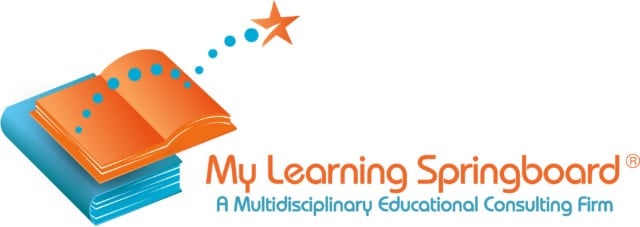
You’ve been worried for some time and suspect that something more might be getting in the way of your child’s classroom achievement and interest in school. You’ve talked informally with teachers over the years and perhaps provided some extra support at home, but it’s still not enough. You finally decided to make a formal request to your child’s school stating your concern and requesting that an IEP meeting take place. Within 10 school days, you will receive a phone call inviting you to discuss your student and begin the IEP process, and, within 60 days, you will be invited to an educational planning meeting for your student’s IEP. Whether it’s your initial referral meeting, or a re-evaluation meeting, there’s preparation to do, although the two processes definitely have differences. In this article, we’re going to focus on the initial referral meeting, also called an IEP Evaluation Meeting (or Educational Planning Conference per NYC DOE paperwork).
If you suspect your child has an educational disability, you may request an educational evaluation or screening by contacting the school in writing. Your request should state that you suspect that your child has an educational disability and that you would like the assessment process to begin. No matter the school system, evaluations must be completed and shared with you at a meeting within 60 school days from your request. In NYC, the first step the school must take, after receiving a request for an evaluation, is to schedule a meeting with a social worker to take a social history and to secure written informed consent before starting the evaluation. At My Learning Springboard, we advise that you organize a private, comprehensive evaluation, in which case you’ll share it with the school once it’s finalized and at least 5 to 10 days ahead of the scheduled meeting. The school system will then propose any supplemental testing they feel is necessary when you meet.
To prepare for an initial referral meeting, whether it is with the school team, an intake social worker, or school psychologist, you should have the following information organized and available:
- Documentation of your area of concern(s), such as poor achievement on school and standardized tests; work samples; report cards and report card comments; conference notes from school personnel; and/or outside assessments or reports. NOTE: outside assessments or reports need to be given before a meeting—if they are shared at the time of the actual meeting, the team has to stop the meeting and reconvene at a later date after the private testing has been properly reviewed. The timeline for “in advance of the meeting” isn’t perfectly clear, so allowing for at least 5-10 school calendar days is recommended.
- If your child has behavioral and/or social-emotional issues, you should have documentation of those as well in the form of teacher comments; outside interventions; or school-developed behavior contracts. A Functional Behavior Assessment (FBA) and/or a Behavior Intervention Plan (BIP) only exist after an initial meeting is completed and are part of the IEP, so the school would already have these on file.
- A chronological history of your child, including early interventions by professionals as well as any concerns noted and/or actions taken in pre-school or earlier;
- If your child is taking medication or has taken medication to address areas of concern or allergies, you should have a complete list, including dosage amounts, in chronological order available as well.
- If you’ve already completed a private, comprehensive evaluation, you should share it with the school team for review in advance of the scheduled meeting. Any other private evaluation, such as psychiatric evaluations, OT reports, or speech and language evaluations should be shared as well in advance of the scheduled meeting. Again, the timeline for “in advance of the meeting” isn’t perfectly clear, so allowing for at least 5 to 10 school calendar days is recommended.
To prepare for a re-evaluation meeting, you should have the following information organized and available:
- Updated medical history, including any changes to medication, diagnoses, and/or treatment plans.
- If you have completed an updated private evaluation, you should share it with the school team for review in advance of the meeting.
- Any additional information from private providers, including tutors and therapists.
Once the school system determines that it will move forward with an evaluation process, the evaluations must address the following questions:
- Does the student have an educational disability?
- If so, does the student need special education intervention? If yes, then the team will move to development of an IEP. If not, the student may be deemed ineligible for special education service and you may request the development of a 504 Plan.
- What accommodations or modifications to the curriculum are necessary?
- Are related services necessary?
The initial evaluation process must include:
- A social history
- A psychoeducational evaluation
- A classroom observation
- And in NYC, a recent physical evaluation. Other jurisdictions may accept a review of medical records on file at the school.
Members of the initial IEP team must include:
- Parent or guardian of the child.
- A special education teacher or provider.
- A general education teacher or provider.
- The school psychologist or an individual who can interpret the instructional implications of the evaluation(s) results.
- The student, when appropriate.
- A person who is knowledgeable about the availability of district resources and is qualified to supervise special education and knows the standard grade level curriculum. This often is the school psychologist or special education teacher present.
Prior to the post-assessment IEP meeting, be sure that you have received copies of ALL documents that will be shared and discussed at least 5 business days prior to the meeting so that you and your team have time to review them. Make this expectation known, in writing, when you sign the informed consent document. The information derived from the evaluations will be used to determine if your child has an educational disability and, if so, if he/she needs special education intervention to access the curricula. The specifics of the interventions will be determined at an IEP development meeting, which will be scheduled for another time.
It’s important to note that you may bring anyone you would like to the evaluation IEP meeting, but it’s best practice to notify the school team in advance. If you don’t notify the school team in advance and receive their consent, it’s possible you’ll encounter friction on the meeting date, which is stressful for everyone and best avoided. Arriving with unannounced experts sets a negative tone.
It’s advisable to have an expert special education advocate attend with you, and that advocate’s role may vary depending on the situation and desired outcomes. It is also advisable to retain a special education attorney because IEPs are a legal matter, but attorneys usually don’t attend school-level or CSE meetings for strategic reasons. Therefore, it is better for expert advocates to attend instead — which Brad Hoffman and Laurie Gross do for our families in New York, New Jersey, Connecticut, Maryland, and Washington, DC — and a collaborative effort has led to the greatest success for our students and families.
Once the meeting has occurred and the school team completes their review, they’ll determine if an IEP is justified based on an educational disability. Notably, an IEP process falls under special education, whereas a 504 process falls under general education. An IEP requires specially designed instruction in addition to justified accommodations, whereas a 504 process simply formalizes accommodations in order to access the general education curriculum and level the playing field, typically for students with a medical need, such as ADHD or anxiety.
If an IEP is developed, it is subject to an annual review, which brings the full team back together every 12 months from the date of the implemented IEP. There is also a triennial meeting, which occurs every 3 years. Each meeting has nuanced differences, but the point is to continually review the need for the IEP and to refine the goals and services as appropriate. While the school system messages that IEP meetings only happen once annually, in fact, parents can request an IEP meeting at any time if there’s a particular concern. Because IEP and 504 processes are federally regulated, there are bureaucratic intricacies that must be followed both by the school system and families. Keep in mind that the school system is held to the standard of providing a “free and appropriate” education (FAPE), which is not the same as a platinum-level standard that families and outside professionals may have in mind. Ideally this can be a collaborative, constructive process, but sometimes it becomes contentious, hence the importance of having a trusted advocate and special education attorney on hand.
Written by Brad Hoffman, Board Certified Educational Planner and Learning Specialist, and Laurie Gross, Educational Consultant and Special Educator.


Leave a Reply